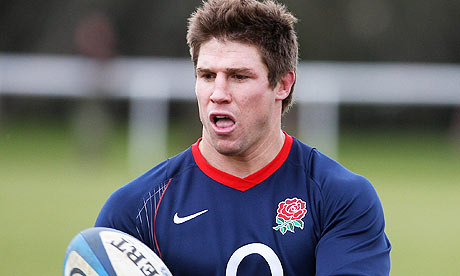
Bath started their pre-season preparations in earnest this week only too aware that they have to clean up a reputation that has taken a battering this year because of the actions of five of last season's squad who are serving long-term suspensions for either taking cocaine or refusing a club request to take a drug test. The Premiership team have been the most entertaining to watch on the field but have become an eyesore off it, with graffiti on a bridge in the city last season alleging drug-taking by one player, and the squad and team management are drawing up a code of conduct to herald an end to lurid headlines.
"There is no question that the image of Bath, starting last January when Matt Stevens was banned for two years after testing positive for cocaine, has been tarnished this year," said the club's chief executive, Bob Calleja. "It will take a long, long time to remedy that and the players go into the new season knowing how important it is to uphold the name of Bath. We are a rugby city, they are celebrities here, easily recognisable wherever they go. They have a responsibility and they know that."
Calleja does not believe there will be an adverse impact on the field from the nine-month bans handed out this week by the Rugby Football Union to last season's co-captains, Michael Lipman and Alex Crockett, and the wing Andrew Higgins after they were found guilty of conduct prejudicial to the interest of the game by twice failing to turn up for drug tests. Those were arranged by Bath as part of an investigation into an unofficial end-of-season party in London on 10 May. The Australia second-row Justin Harrison was last month banned for eight months after admitting snorting cocaine during the trip while on Bath's books.
The RFU originally charged Lipman, Crockett and Higgins with ingesting an illicit substance(s) or giving the impression they had done so, but those charges were dropped on the first day of the hearing because the three-man panel decided the two charges were based on rumour and innuendo. It proceeded with the third, refusing to take a drug test, knowing that, if that was proved, it would be able to reflect any adverse inference in the punishment it handed out.
"What is important to remember in all this is that the three players this week were not found guilty of taking illicit drugs," said Calleja. "While as a club we feel vindicated in the strong line we took once we heard the allegations that followed the party in London, which was organised by some of the players not the club, there is nothing to suggest that drug-taking is rife in Bath or the Guinness Premiership as a whole. We support the joint initiative to introduce random testing for illicit substances but there also has to be a focus on alcohol. You are never going to stop rugby players from drinking but they have to be made aware of the perils of binge drinking."
The panel concluded alcohol was at the root of what happened during the outing in London, which was organised by Lipman. The hooker, Rob Hawkins, fell unconscious and had to be taken to hospital. He feared a drink had been spiked with a drug but a test proved negative. One unnamed player claimed he had gained the impression after speaking to Higgins and Crockett in a bar that drinks had been spiked. "This conversation took place after a lot of alcohol had been consumed," wrote the panel's chairman, Jeff Blackett, in his 7,500-word judgment which was published yesterday. "Significant quantities of alcohol were consumed and by the end of the evening all of the players were in varying states of intoxication."
On the day after the trip, Blackett wrote, a senior player told the Bath head coach, Steve Meehan, that some players may have taken drugs in London. Calleja was informed and asked the club's team manager, Dave Guyan, to launch an investigation. Six players – Lipman, Crockett, Higgins, Harrison, Hawkins and Edward Jackson, an academy player – were asked to take drug tests; the latter two agreed and tested negative. The other four refused and then resigned from their contracts.
At the end of June Lipman and Crockett provided hair samples to be tested for cocaine at a privately arranged test with a company in Coventry. The result was negative. Higgins was on holiday at the time; he had a test on his return but has yet to be told the outcome. "All three players are thoroughly decent young men and, if they had taken the hair follicle test, there is no reason to suppose that the results would have been any different from those we have seen," wrote Blackett. The three, who are banned until 1 March, have 13 days to appeal. Given they have no means of gaining income from rugby, they may consider taking action against Bath for wrongful dismissal, arguing the club did not have the right to ask them to take tests for illicit drugs out of competition.
"The contract of every player in the Premiership contains a clause that allows a club to request tests if they feel they have reason to do so," said Calleja. "After what happened with Matt Stevens, we certainly had that reason."

